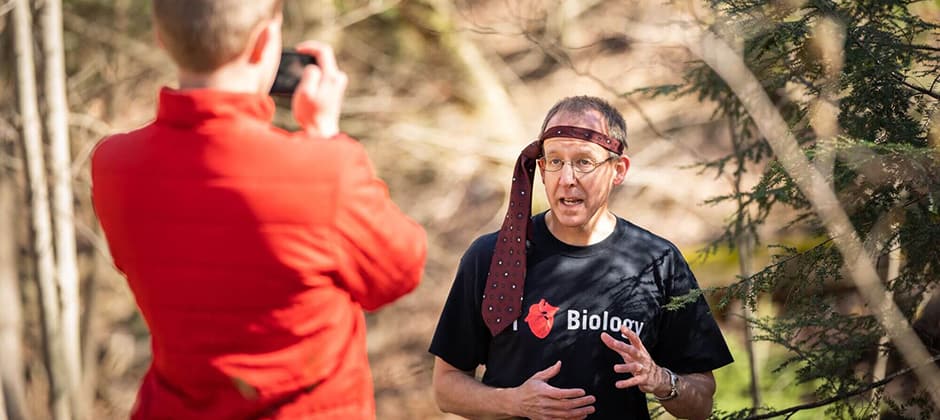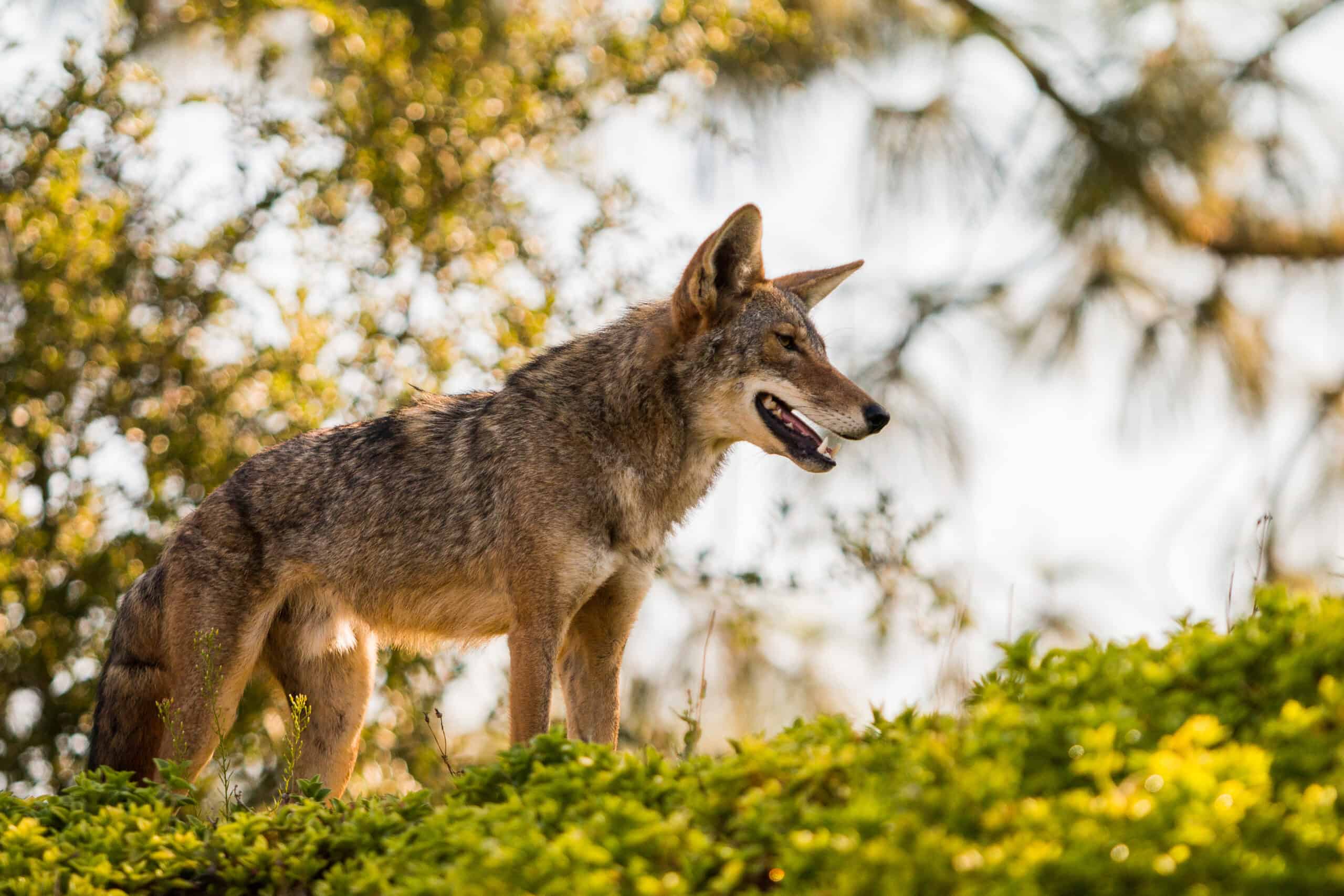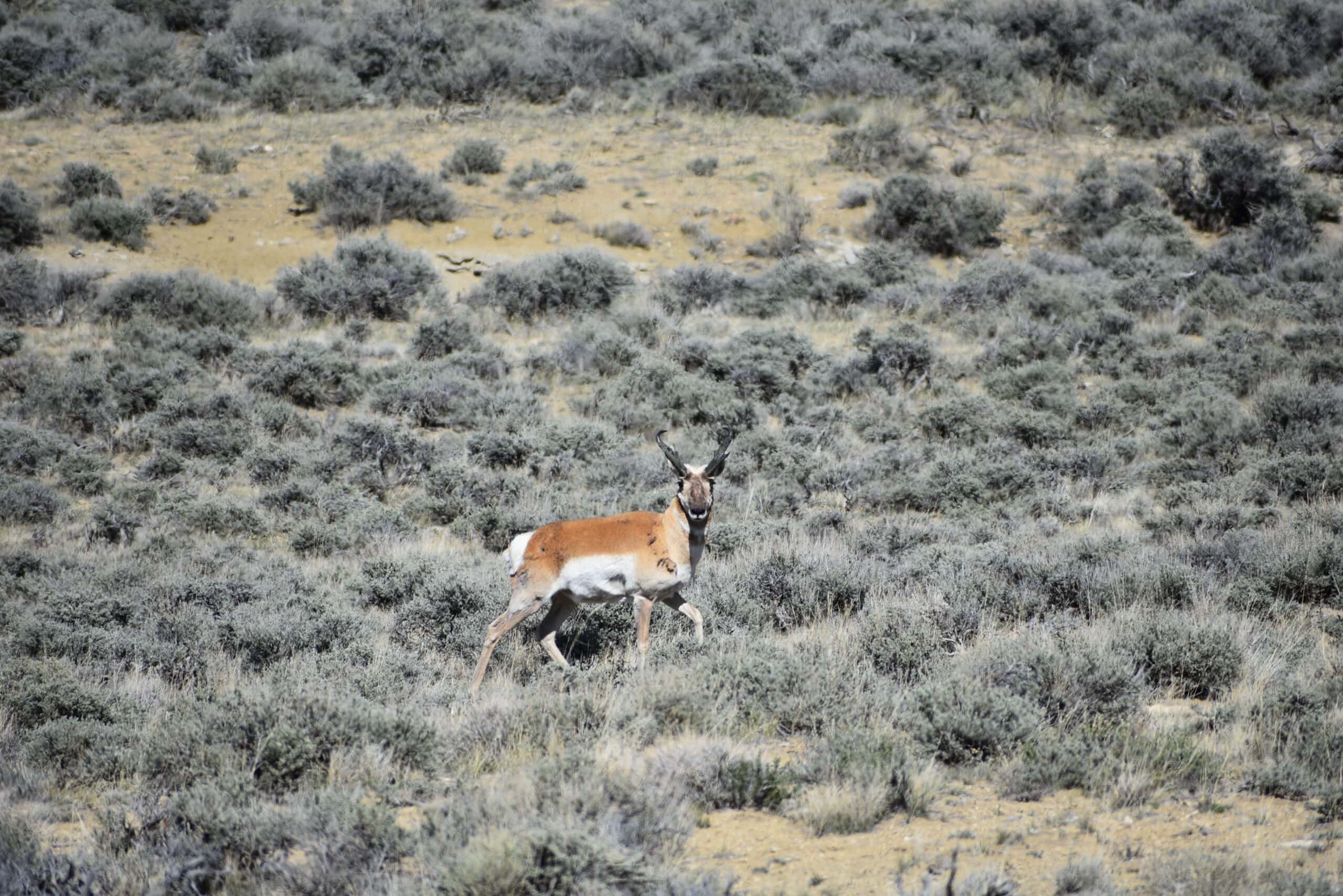Share this article
Amid pandemic, wildlife research is ‘just not the same’
COVID-19 has affected everyone, and wildlifers are no exception. In this series, TWS is looking at challenges facing the profession due to the pandemic.
Measures to contain the novel coronavirus are keeping most workers at home across the continent. That’s true of many wildlife biologists, too, and it’s meant putting a hold on a wide range of projects.
For some researchers, it means putting off field work, which could mean a gap in annual surveys. For some state agencies, management requiring close contact with people is being suspended. Public engagement with private landowners is being halted. On university campuses, the changes are widespread, affecting faculty, graduate students, undergraduates and even the public.
“We’re in a profession where we like being outside, and it’s just not the same,” said Carol Chambers, TWS President-Elect, a professor of wildlife ecology at Northern Arizona University and director of Ecology of the Bat Ecology & Genetics Lab. Chambers has seen bat research curtailed due to efforts to prevent the novel coronavirus from reaching North American bats, and she’s preparing for budget cuts at the university to deal with dwindling funds.
In a nonscientific questionnaire sent to TWS members, more than 200 people responded saying they had to delay or cancel fieldwork. Respondents detailed closed offices and work-from-home orders, and in some cases, hiring freezes and layoffs.
“Early season field work has already been canceled for several projects because of state stay-at-home orders and university travel restrictions,” wrote Michael Monfils, the science coordinator at Michigan Natural Features Inventory, Michigan State University Extension, in a response in the questionnaire. His own academic unit is almost completely funded by grants and contracts, he wrote. “A freeze in state discretionary spending resulted in a stop-work order on many of our projects, representing over half of our budget for the fiscal year. If the crisis continues for more than 2-3 months, we will need to reduce staff appointments and/or lay off employees.”
Some respondents said they have been forced to focus only on the data side of their research projects. Others have had to juggle work with childcare duties and other responsibilities.
Chambers said she’s been able to continue work on the endangered New Mexico meadow jumping mouse (Zapus hudsonius luteus), which will probably allow her to collect home range data in June, but researchers must show the timing of their work is critical in order to continue.
Adam Janke, an assistant professor and extension wildlife specialist at Iowa State University, said he has had to cancel many of his extension programs, including peer-to-peer learning and field days. “This really changes the way we do education and frankly limits us on a lot of education we do in rural communities, where there isn’t even good internet,” he said.
Research there has been able to go on, as long as biologists can stick to social distancing, he said, but some educators are creating new mediums of wildlife outreach, including social media and podcasts. Extension professionals have to shift to online. Iowa State University plans to provide webinars like ones from Iowa Learning Farms to educate people about water, soil, livestock, wildlife and other topics. “We’re trying to at least get these educational resources out to people,” Janke said. “But it’s different. We’re coming into field day season and natural resource education belongs outside, but this disease impedes our ability to do that.”
For many university researchers, online platforms are becoming the new norm, creating challenges for both faculty and students. Moving lectures online can be time-consuming, Chambers said. But many professors are also finding that allowing students more time and flexibility to access lectures, quizzes and other assignments has been helpful.
“I have students who work at a grocery store 60 hours a week, and they’re taking three or four other classes besides mine,” said Amy Russell, an associate professor at Grand Valley State University in Michigan. “At the end of the day, none of them signed up to take these classes online. It’s a big ask from everyone, but I think everybody is really pulling together.”
Header Image: When Grand Valley State University biology professor Tim Evans had to scrap his sabattical research plans due to COVID-19 precautions, he turned to making science videos close to home. ©Amanda Pitts








